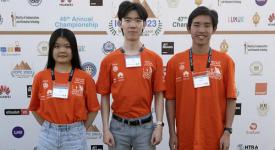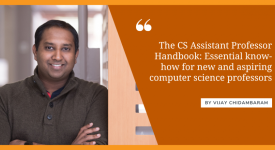UTPC Team Excels at International Programming Competition

05/06/2024 - This past month, UTPC competed at the International Collegiate Programming Contest (ICPC) World Finals hosted by the Arab Academy for Science, Technology and Maritime Transport in Luxor, Egypt.The competition consisted of teams from 124 regions (approx. 372 students) trying to solve 11 problems in 5 hrs. The first-place team, Peking University, solved 10 problems. The second-place team, M.I.T., solved 9 problems.UT solved 6 problems and came in 53rd place, 9th place in North America.












